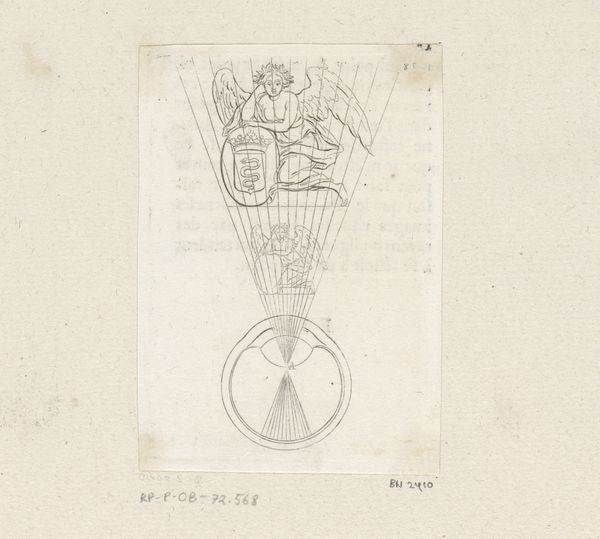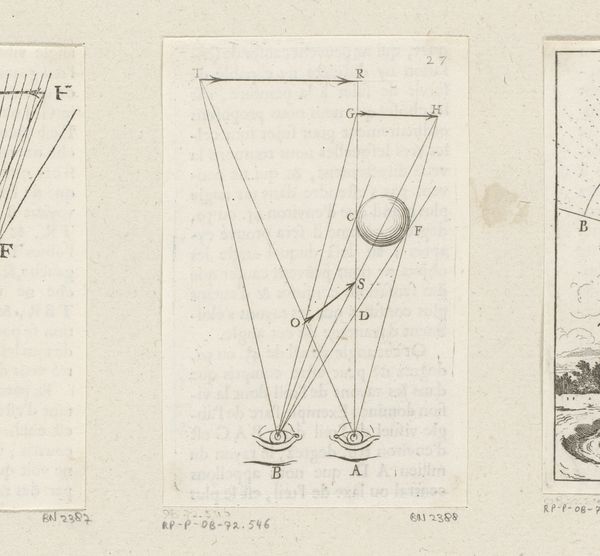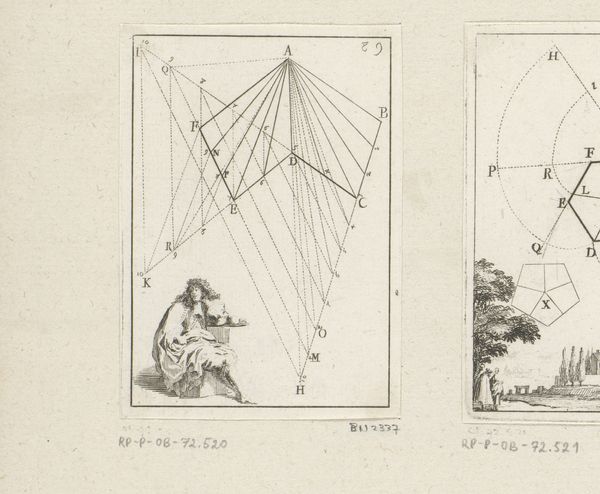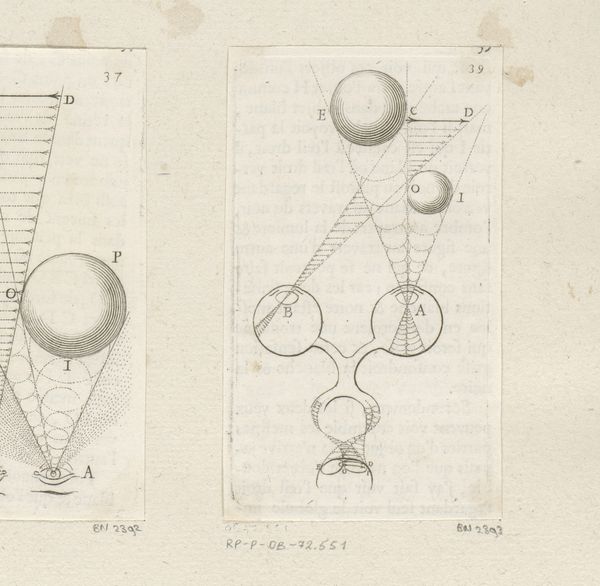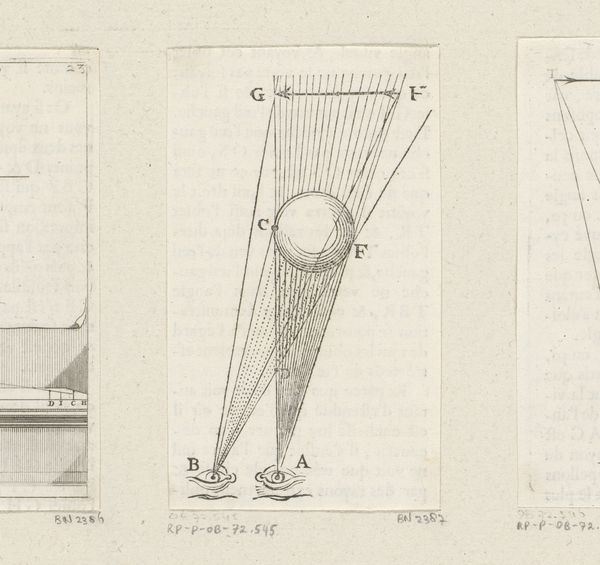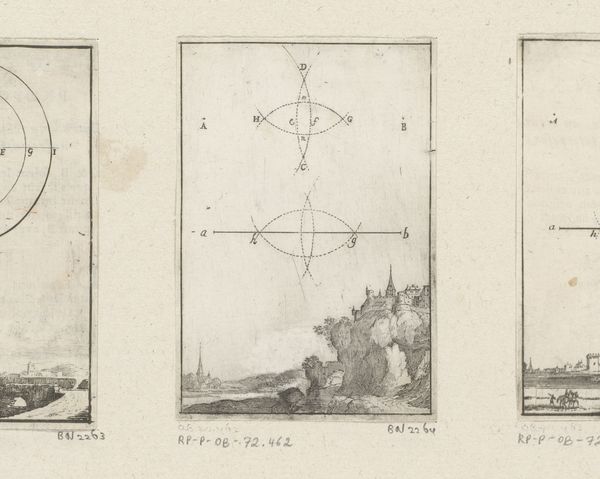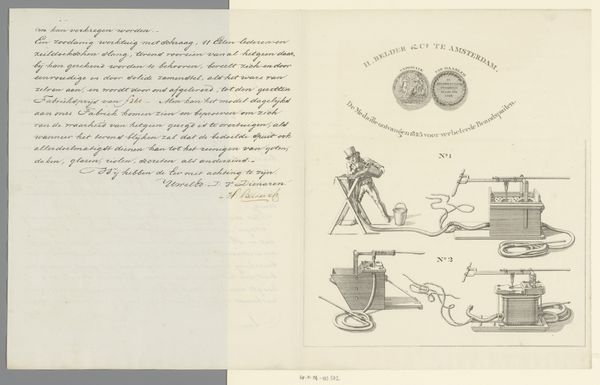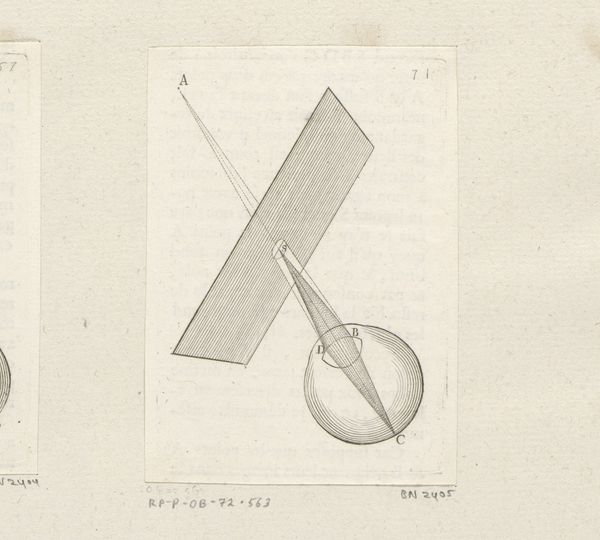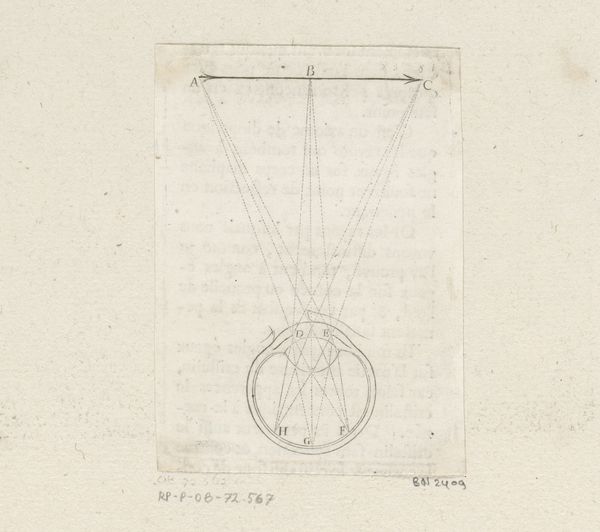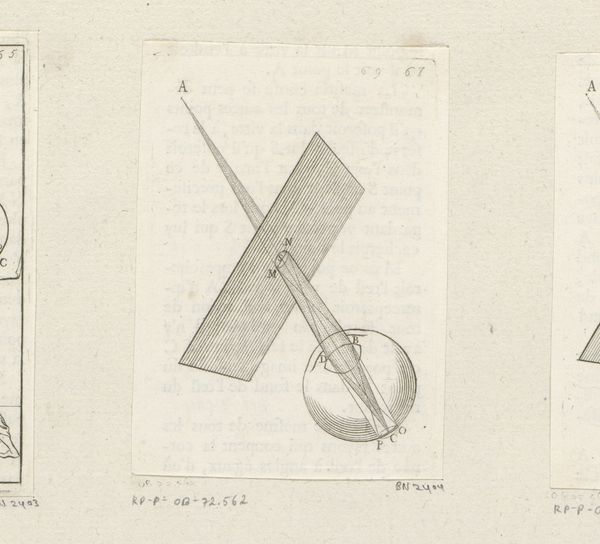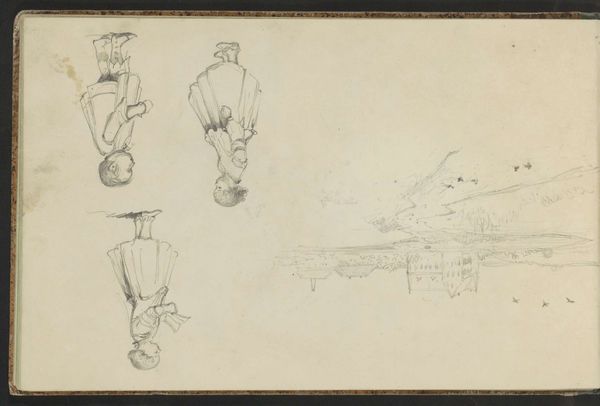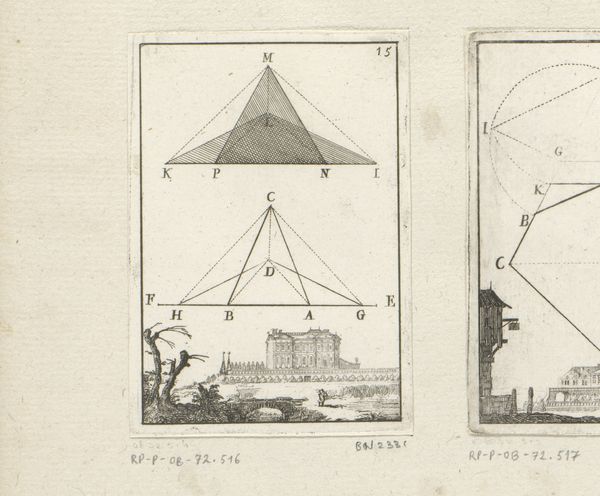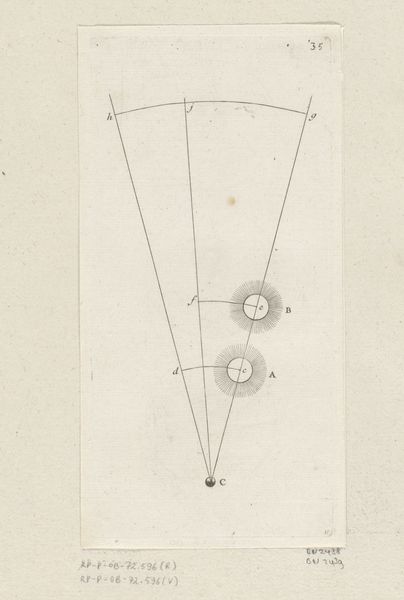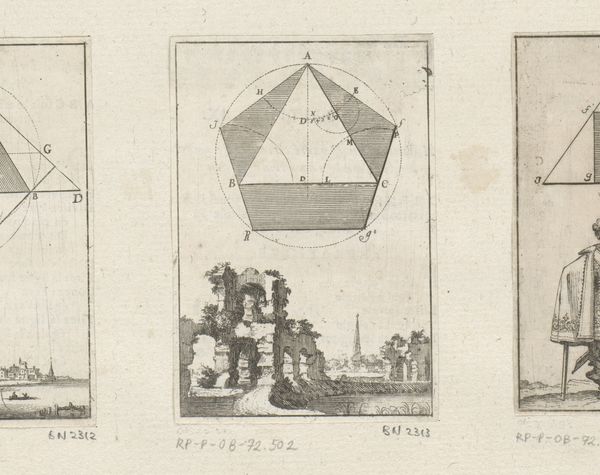
Beeld van een riviergod weerkaatst op de retina van het oog 1679
0:00
0:00
sebastienleclerci
Rijksmuseum
drawing, pen
#
drawing
#
comic strip sketch
#
quirky sketch
#
allegory
#
baroque
#
sketch book
#
figuration
#
personal sketchbook
#
idea generation sketch
#
sketchwork
#
sketchbook drawing
#
pen
#
storyboard and sketchbook work
#
sketchbook art
#
initial sketch
Dimensions: height 101 mm, width 69 mm
Copyright: Rijks Museum: Open Domain
Editor: This drawing by Sébastien Leclerc I, created around 1679, is titled "Beeld van een riviergod weerkaatst op de retina van het oog," or "Image of a river god reflected on the retina of the eye." It's quite… peculiar. I'm fascinated by how technical and artistic it is at the same time. What’s your take on it? Curator: It is peculiar, isn't it? Let’s consider the period. The late 17th century saw the rise of scientific inquiry alongside enduring allegorical traditions. This image presents an allegory of perception, framing how knowledge and meaning were constructed through observation, with that interesting combination of science and art. Editor: So it’s more than just a strange drawing, it's about… seeing itself? The river god descending through the eye is such a powerful image. What's with that eye at the bottom, enclosed within a circle? Curator: Exactly! And the use of linear perspective, a relatively recent tool, to illustrate this process reinforces the sense of objective, "scientific" seeing. But the eye isn’t just an instrument, it's an active agent. Notice how the image makes no reference to who owns that eye or what are they looking at; and how do those two things impact perception itself? Editor: Ah, I see. It almost feels like it critiques that idea of objective viewing, by visualizing the active involvement of a person perceiving their surroundings. It feels more personal now, which is curious given how geometric it looks! Curator: It does indeed; and its existence as a pen drawing, a kind of sketch, allows for interpretation regarding its intentions and even the act of observation it explores. Editor: Thanks. It's really interesting how this image plays with those lines between science, art, and individual experience, particularly at that time. Curator: Absolutely. It serves as a powerful reminder that how and why we look matters just as much as what we see.
Comments
No comments
Be the first to comment and join the conversation on the ultimate creative platform.
